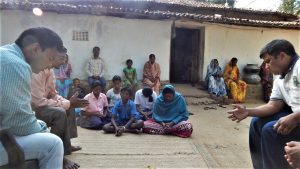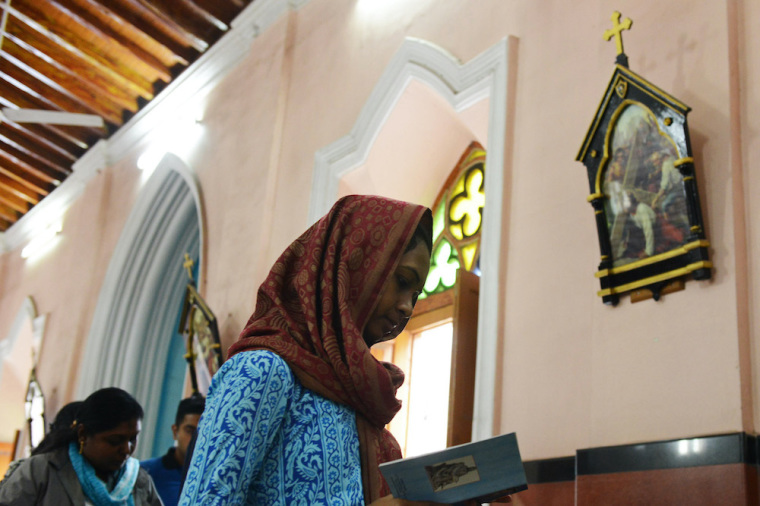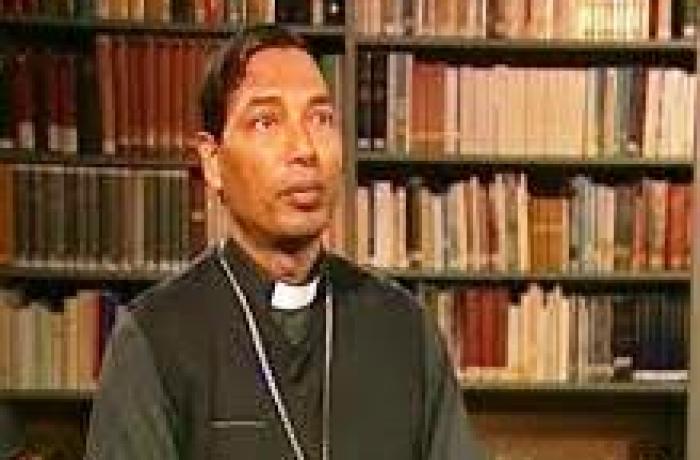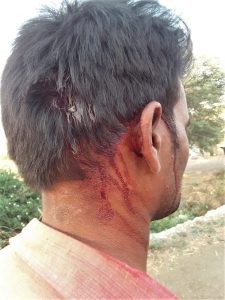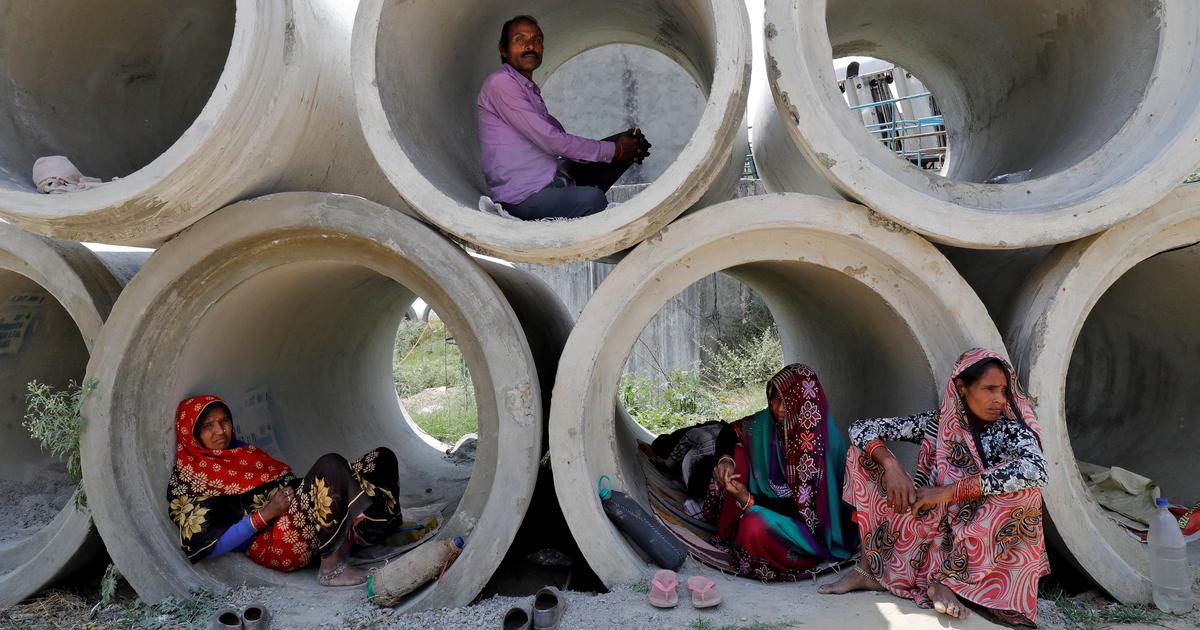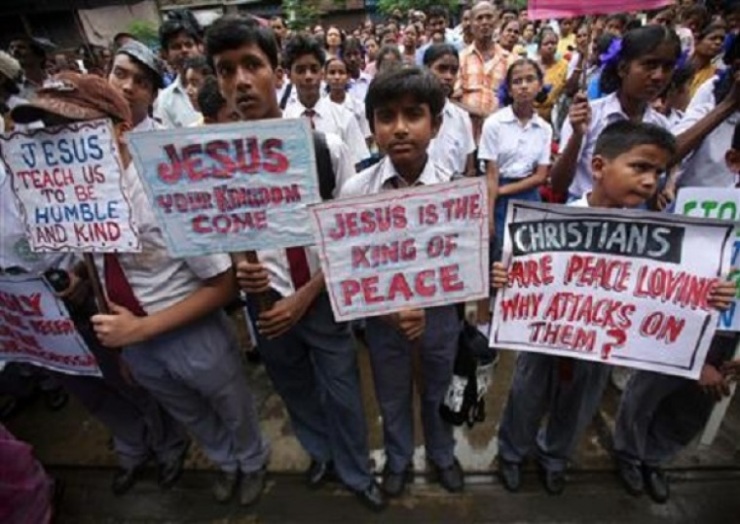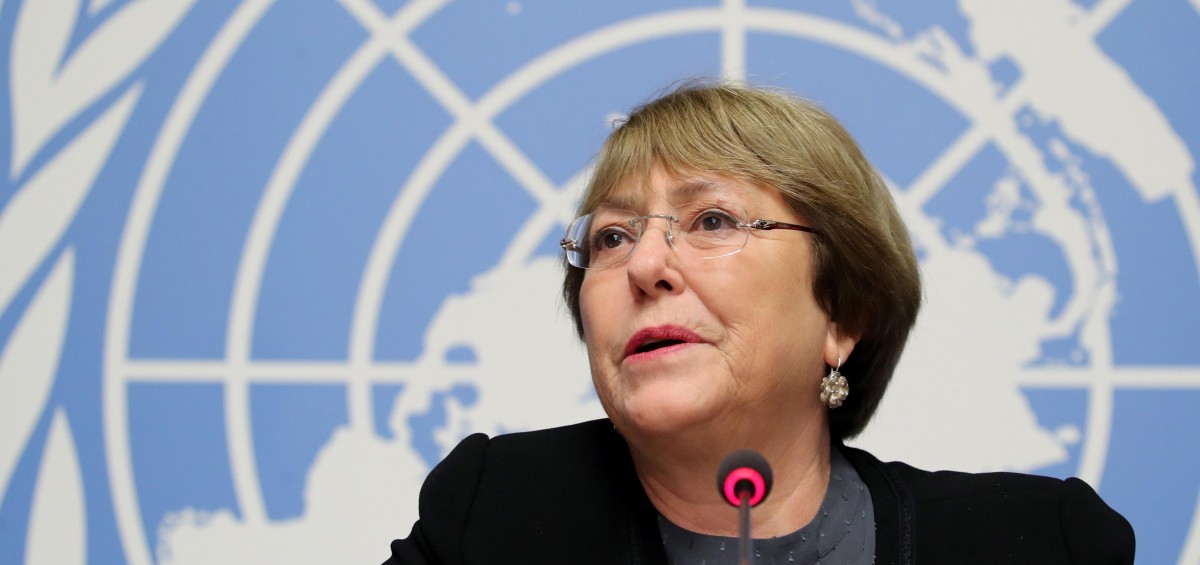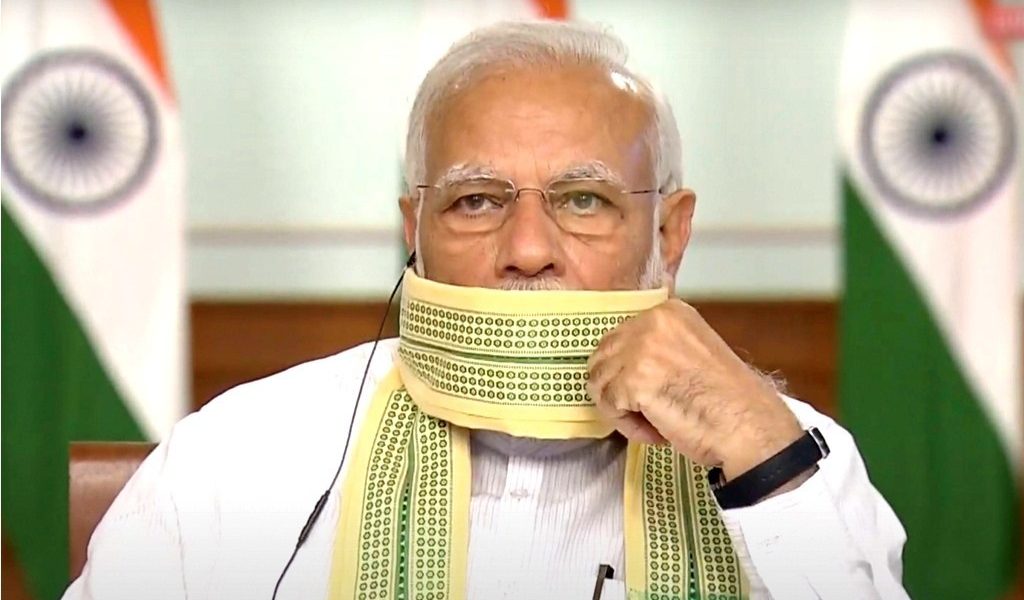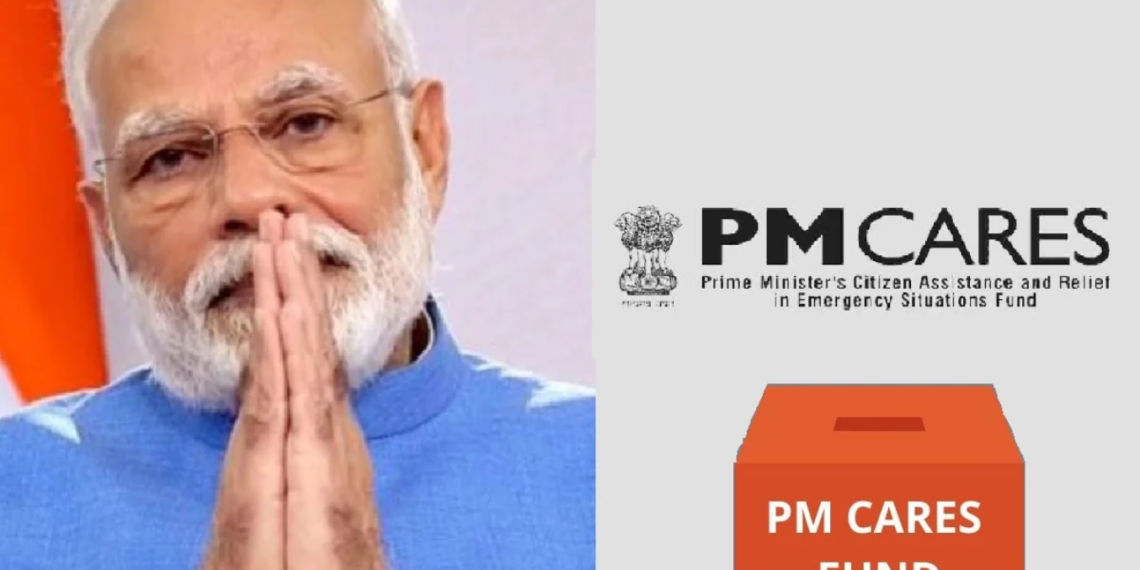Gunmen Shoot, Wound Daughter of Pastor Slain in 2015 in Eastern India
A gunman at the door of a Christian family’s home in eastern India on Thursday (April 16) shot the daughter of a pastor who was killed in the same house five years ago, family members said. Neelam Purty, 25, sustained bullet wounds in her thumb and thigh in the shooting she survived in Sandih village, near Binda village in Murhu Block, Jharkhand state, they said. “Is this the house of the pastor who was killed?” one of two men asked family members at the door at about 8 p.m., according to Purty’s sister, Sharon Purty. She said the men were trying to speak in the local Mundari dialect, but that it was clearly not their native language. They resorted to speaking Hindi, she said. “That pastor was killed, but you did not learn a lesson,” the men said as they shouted at family members at the door, according to Sharon Purty, who said they added. “You have continued assembling in large numbers for Christian prayers. Where is the woman working as spy?” The sisters’ mother told them that they were not spies and asked them to leave, Sharon Purty said. “‘Call the woman out, or we will kill you,’ they threatened us,” she said. One of the
Christians in India see dramatic increase of attacks in 2020
Indian Catholic devotees offer the way of the cross prayers after an Ash Wednesday service at Saint Mary's Basilica in Secunderabad, the twin city of Hyderabad, on March 5, 2014. | AFP via Getty Images/Noah Seelam Attacks on Christians and their places of worship in India continued to escalate in both number and severity in the early months of 2020, with 27 violent incidents reported in March alone. United Christian Forum in India, a Christian organization that advocates on behalf of Christians in India, documented 56 threats against Christians as well as 78 incidents of violence between January and March of 2020. According to UCF, these attacks took place in Uttar Pradesh, Chhattisgarh, Tamil Nadu, Odisha, Bihar, Karnataka, Madhya Pradesh, Maharashtra, Telangana, and Goa. In most cases, the attacks were perpetrated by mobs objecting to Christians holding worship services. On March 12, a mob attacked a pastor and his 6-year-old son because they were running a house church. The mob reportedly forced the pastor’s 8-year-old daughter to strip and threatened to beat her to death if she did not comply. On March 15, a mob of 300 individuals attacked a church service in Kunda Thana, located in India’s Uttar Pradesh state. There, the pastor of the church
Epidemic making things worse for Christian Dalits
For Bishop Sarat Chandra Nayak of Behrampur, "policies take into account the urban population, but the basic situation of the villages is never taken into consideration". A priest was arrested for breaking lockdown regulations; he was later released. "Our people are suffering a lot" from the coronavirus and the lockdown imposed by the authorities to fight the epidemic, said Bishop Sarat Chandra Nayak of Behrampur (pictured), speaking to AsiaNews. A priest for example was arrested recently for allegedly violating lockdown regulations. “Father Devendra Nayak, a Catholic priest in Mohana, was taken into police custody for crossing the street inside a Catholic parish compound,” the prelate explained. “He was going from the hostel to the refectory building for lunch when the police entered the compound and detained him for a few hours. The distance between the two buildings is only 30 yards and the priest was crossing the road inside the compound.” “I lodged a complaint with the additional district magistrate against the detention of our priest," said the Bishop. “The police entered the compound, despite claiming that they were outside.” Bishop Nayak heads the Commission for Scheduled Castes and Other Backward Castes. “In every situation, Christian Dalits suffer more marginalisation,” he explained. “Policies take into
Pastor in Central India Attacked for Police Report on Prior Assault, Expulsion
Tribal animists in central India who demolished a pastor’s house and drove him and his family out of their village in March seriously injured him in an assault this month, he said. After beating, choking and pelting pastor Lalu Kirade with a stone in the April 3 attack, the tribal villagers in Khandwa District, Madhya Pradesh threatened to destroy his vocal chords as one of the assailants put her foot on his throat, he said. “They had sprung on me like a pack of wild dogs,” Pastor Kirade told Morning Star News. “They told me to call upon my God to come and rescue me.” Among the assailants was the man who began the assault on him in March for refusing to abandon Christianity, identified only as Laxman. In the most recent assault, the six men and two women of one extended family ambushed the 29-year-old pastor as he returned from a grocery shop near the yard where his family is living under the open sky three miles from his former home in Bilood village, he said. They hit and kicked him, pulled his ears, dragged him by the hair and uttered profanity about Christianity and Christ, the pastor said, besides robbing him of rupees equivalent
India has the resources to care for its embattled migrant workers – but does it have the will?
It appears a government relief package of Rs 544 billion targeting migrants is sufficient but it needs to reach them immediately. The government’s decision on March 24 to declare a lockdown at four-hours notice to attempt to slow the transmission of Covid-19, banning all transportation betrayed a lack of understanding of the dynamics of migration in India. As has been documented in horrendous detail, the decision triggered a massive reverse migration. Since it was implemented without detailed planning, the lockdown put millions of low-skilled migrant workers in danger of starvation, subjected them to health risks and mental trauma as they lost the daily wages on which they depended for survival. Tens of thousands started walking back home with their families. But in many places, the police cracked down on them. As a result, many interstate migrants are stranded far from home, with no money or food. While India’s governments are usually very responsive to migrant workers stranded abroad (even arranging special flights to bring some home), the plight of millions of workers at home received attention only after the announcement of lockdown. Crisis foretold This reverse migration could have easily been anticipated. If Indian students, tourists, pilgrims stranded overseas want to return home,
The Federation of Indian American Christian Organizations (FIACONA) thanks the US Commission on International Religious Freedom (USCIRF) for recognizing the grave downward spiral of affairs in India despite India being a democratic nation
April 28, 2020, Washington DC. The fact that India prides herself as a democratic state makes it even more critical for her to behave like one respecting the fundamental rights of every citizens and not undermine any sections of the society. The President of FIACONA Mr. Koshy George said, “I am worried that the persecution of Christians and other religious minorities continues even during the Coronavirus lockdown and I am very disappointed with Prime Minister Modi for not condemning such behavior of his party cadre forcefully”. He further said, ‘I thank the USCRIRF for recognizing the real state of affairs on the ground in India and India’s downward trend in upholding democratic traditions’. Mr. John Prabhudoss, the Chairman of FIACONA thanked Commissioner Nadine Maenza for highlighting the specific national issues. He also wanted to know when will Rashtriya Swayamsevak Sangh (RSS) will be designated as a non-state actor in India? The Commission said in its report, “Throughout 2019, government action—including the CAA (Citizenship Amendment Act), continued enforcement of cow slaughter and anti-conversion laws, and the November Supreme Court ruling on the Babri Masjid site—created a culture of impunity for nationwide campaigns of harassment and violence against religious minorities”. FIACONA strongly recommends that the US government
Tribal animists beat pastor, threaten to destroy vocal cords to halt further evangelism
School children listen to a speech by a Christian leader during a protest rally in the eastern Indian city of Kolkata August 29, 2008. (Photo: Reuters/Jayanta Shaw) After demolishing a pastor's house and driving his family into the jungle, tribal animists in central India severely beat the Christian leader, threatening to destroy his vocal cords so he can no longer preach. Nearly a month after tribal animists expelled the Christian family from Bilood village in Madhya Pradesh state and destroyed their home, tribal animists ambushed Pastor Lalu Kirade as he returned from a grocery store. Led by a man identified only as Laxman, seven individuals beat, choked, and pelted the pastor with a stone, Kirade told Morning Star News. "They had sprung on me like a pack of wild dogs," the pastor recalled. "They told me to call upon my God to come and rescue me." "My head began to spin with the sudden strike. Blood started to ooze out of the injury, and I fell on the ground. I heard the men shouting at Laxman's wife for hitting me with a stone. They said they had planned to hit me in a way that I would not bleed. They scolded the women for not doing as planned." Laxman's niece
COVID-19 Emergency Powers Shouldn’t Be Weaponised to Suppress Dissent: UN Human Rights Chief
Shooting, detaining, or abusing someone for breaking a curfew because they are desperately searching for food is clearly an unacceptable and unlawful response, the UN body chief Michele Bachelet said. United Nations High Commissioner for Human Rights Michele Bachelet cautioned governments against violating basic human rights granted to people under the guise of adopting emergency powers to fight the COVID-19 pandemic. In a statement earlier this week, Bachelet said that emergency powers should not be weaponised by governments to “quash dissent, control the population, and even perpetuate their time in power”. “They should be used to cope effectively with the pandemic – nothing more, nothing less,” she said on April 27. Referring to reports of use of excessive force to force citizens to abide with lockdown rules, she noted that most violations have often been committed against people belonging to the poorest and most vulnerable segments of population. “Shooting, detaining, or abusing someone for breaking a curfew because they are desperately searching for food is clearly an unacceptable and unlawful response. So is making it difficult or dangerous for a woman to get to hospital to give birth. In some cases, people are dying because of the inappropriate application of measures that have
PMO Refuses to Give Details on PM-CARES, Citing Controversial SC Statement
The PMO also refused information regarding the implementation of the national lockdown and how this decision was reached. The Prime Minister’s Office (PMO) has refused to make documents related to the PM-CARES Fund public. The fund was set up to receive financial aid from the public to fight the coronavirus pandemic. In addition, the PMO has also refused to make public details of high-level meetings on COVID-19 and on the decision to implement a lockdown, the correspondence between the Ministry of Health and the PMO in this regard, and files related to COVID-19 testing. It is significant to note that the PMO has not refused to share information in a straightforward manner but among many reasons, cited a controversial statement made by a bench of the Supreme Court. A resident of Greater Noida and environmental activist, Vikrant Togad, had filed an application under the Right to Information (RTI) Act on April 21, 2020 seeking information on 12 points from the PMO. However, the PMO hurriedly sent a reply merely six days later, on April 27, refusing to furnish information citing that the application contains multiple requests on numerous and varied topics, as a result of which the information could not be provided. Also read: PM
When Government Committee Said ‘No CSR’ for PM Relief Funds, Why the Sop for PM CARES?
Contribution to central government funds runs contrary to the philosophy of CSR which is the leveraging of innovation of the private sector to deliver public goods and services. On March 28, 2020, as the incorporation of a new relief fund was announced by the Prime Minister’s Office (PMO), the Ministry of Corporate Affairs swiftly issued a general circular which clarified that any contribution made to the new fund, that is the PM CARES Fund shall qualify as CSR (Corporate Social Responsibility) expenditure. The circular’s impact is far greater impact than simply encouraging profit-making companies to supplement the government’s resources − it allows for uncapped contributions to a central government fund in direct contradiction of reports by committees specifically constituted to evaluate CSR legislation. CSR became statutorily mandated after the enactment of the Companies Act, 2013. Philanthropic activities that companies had been undertaking voluntarily were turned into a mandatory statutory provision. It required all companies that met a specified financial threshold to expend 2% of their average net profit towards CSR activities. The Act identified areas such as education, eradication of malnutrition, sanitation, etc. that qualified as CSR expenditure. Companies were required to constitute an internal CSR committee to formulate policy along the lines of the identified



